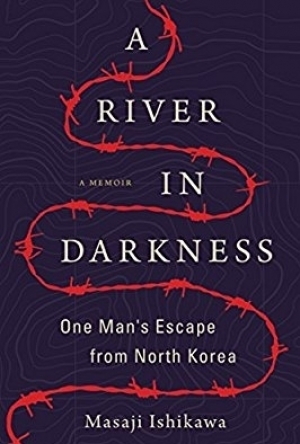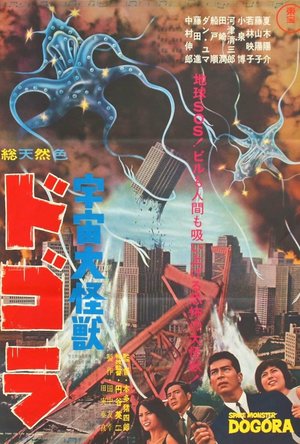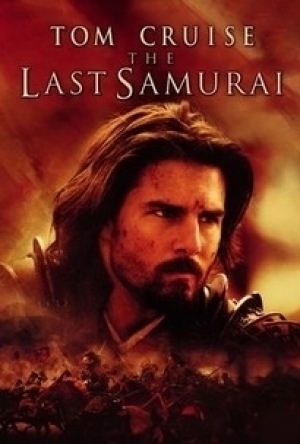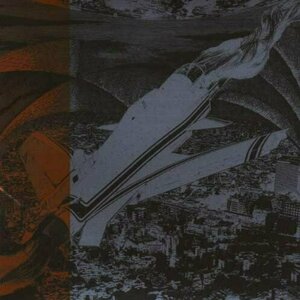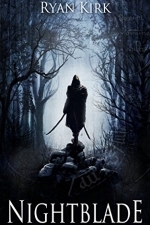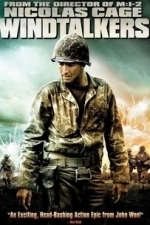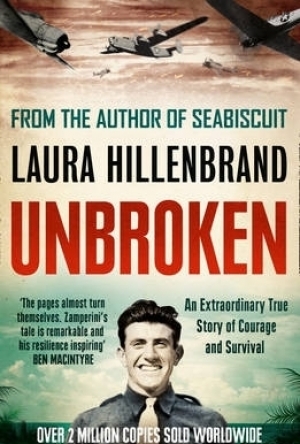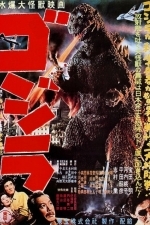Search
Search results
Suswatibasu (1703 KP) rated A River in Darkness: One Man's Escape from North Korea in Books
Jan 17, 2018
An utterly bleak story of an invisible man
Masaji Ishikawa's story is truly soul-crushing, the level of trauma is beyond comprehension, therefore read it with caution.
Ishikawa describes his life under the North Korean regime as gruelling, horrifically terrifying, and there are some completely hopeless moments where you think why even bother anymore.
His journey begins in Japan, the child of a Japanese mother and Korean father, he was forced at a young age to move to North Korea under the pretence of "returning" to his motherland, though he never believed so. His father, an originally extremely violent man became pacified as he realised the perilous situation he bought his family into. But they soon face the truth and brutality of their circumstances.
The narrator defects at a much later stage in life, living around 30 years under the dictatorship, but leaving his family behind. He questions whether he made the right decision in the end as the consequences are revealed and the reader is left writhing in agony at his pain.
It is not an easy read, but it is important to understand the level of complexity and the reality of the situation. An absolute must read.
Ishikawa describes his life under the North Korean regime as gruelling, horrifically terrifying, and there are some completely hopeless moments where you think why even bother anymore.
His journey begins in Japan, the child of a Japanese mother and Korean father, he was forced at a young age to move to North Korea under the pretence of "returning" to his motherland, though he never believed so. His father, an originally extremely violent man became pacified as he realised the perilous situation he bought his family into. But they soon face the truth and brutality of their circumstances.
The narrator defects at a much later stage in life, living around 30 years under the dictatorship, but leaving his family behind. He questions whether he made the right decision in the end as the consequences are revealed and the reader is left writhing in agony at his pain.
It is not an easy read, but it is important to understand the level of complexity and the reality of the situation. An absolute must read.
Awix (3310 KP) rated Dogora (1964) in Movies
Jul 20, 2019 (Updated Jul 20, 2019)
Bonkers Japanese sci-fi from the Godzilla team makes most of those movies look like models of restraint and gritty realism. Odd things are afoot in Japan as seemingly random objects - coal, trucks, bank robbers, buildings - start spontaneously floating into the air. 'I never jump to conclusions but I think a giant space monster is probably responsible,' says the lead cop investigating the case. Of course, he is correct, and it's up to the usual team of cops, scientists, and soldiers to save the day.
The really weird thing about Dogora - and this is saying something - is that the giant diamond-eating monster element is not the oddest thing about this film. Most of it looks and feels like a particularly frantic cops-and-robbers thriller with the odd giant floating blob sequence edited in under protest. Still, the script has Shinichi Sekizawa's usual cheerful wit and the special effects are, believe it or not, excellent. Good fun if you like tokusatsu movies; the climax, in which wasp venom is used to try and petrify the monster and a gun battle turns into a dynamite-chucking contest, has to be seen to be believed.
The really weird thing about Dogora - and this is saying something - is that the giant diamond-eating monster element is not the oddest thing about this film. Most of it looks and feels like a particularly frantic cops-and-robbers thriller with the odd giant floating blob sequence edited in under protest. Still, the script has Shinichi Sekizawa's usual cheerful wit and the special effects are, believe it or not, excellent. Good fun if you like tokusatsu movies; the climax, in which wasp venom is used to try and petrify the monster and a gun battle turns into a dynamite-chucking contest, has to be seen to be believed.
David McK (3562 KP) rated The Last Samurai (2003) in Movies
Feb 6, 2021
Who is The Last Samurai?
In the early noughties, following the success of Ridley Scott's 'Gladiator', there was a rash of historical epic films - 'Alexander', 'Troy', 'Kingdom of Heaven'.
And this.
Which is a strong contender for one of the best of those films.
The film stars Tom Cruise (who, for once, is not playing Tom Cruise) and Ken Wattanabe, with the former a world weary US Civil War veteran (suffering from PTSD?) who is hired to train the modernising Japanese army, and the latter a Samurai leader who thinks Japan is losing its identity; moving too fast into the future.
Captured by that Samurai leader following an early battle, Algren (Cruise's character) soon finds himself beginning to wonder is he fighting in the right side...
Yes, the plot is somewhat akin to 'Dances with Wolves' (or even 'Avatar'), and I've heard the charge of the film being a White Saviour story - a charge, I have to say, that I do NOT find any merit in: indeed, I would argue the opposite (that Cruise's character is saved rather than the one doing the saving) is more true.
And this.
Which is a strong contender for one of the best of those films.
The film stars Tom Cruise (who, for once, is not playing Tom Cruise) and Ken Wattanabe, with the former a world weary US Civil War veteran (suffering from PTSD?) who is hired to train the modernising Japanese army, and the latter a Samurai leader who thinks Japan is losing its identity; moving too fast into the future.
Captured by that Samurai leader following an early battle, Algren (Cruise's character) soon finds himself beginning to wonder is he fighting in the right side...
Yes, the plot is somewhat akin to 'Dances with Wolves' (or even 'Avatar'), and I've heard the charge of the film being a White Saviour story - a charge, I have to say, that I do NOT find any merit in: indeed, I would argue the opposite (that Cruise's character is saved rather than the one doing the saving) is more true.
Wayne Coyne recommended Smile by Boris in Music (curated)
Taryn K (444 KP) rated Otherworldly Izakaya Nobu Volume 1 (manga) in Books
Apr 14, 2022
The characters are well-developed. (3 more)
The art is very nice, with the characters and scenery not being 'too cartoony', but still consistent and appealing.
Each chapter (at least in this volume) is a self-contained story, but very much part of the whole.
There are several notes right under the panels for translating food terms on the page the food is on, as well as a page of food vocabulary at the back in German and Japanese, which is very helpful.
Sitting down with a nice cold mug of Whatsontapp in another world
_Otherworldly Izakaya Nobu, volume 1_ is a quiet slice of life isekai manga about a Japanese eatery (Izakaya) run by a chef named Nobu and his staff member, Shinobu. Through supernatural means that aren't explained until a much later volume, the eatery somehow has a back door in modern Japan, but the front door is in a medieval Germanic country known as Eiteriach, in a world with two moons.
The eatery just 'suddenly appeared' in town and soldiers and locals, and eventually members of the nobility visit in the six chapters of the book, and Chef Nobu and Shinobu-chan are always up for creating something delicious for whomever is visiting at the time. Most issues that come up are taken care of in the chapter they're brought up, and while there are issues that could be explored, like the commander's refusal to eat fried squid tentacles which we end up finding out why in a later volume, they aren't cliffhanger material. The book is written in such a way that if there hadn't been a volume 2-9, it still feels like a complete collection of stories, yet each volume builds on the previous one.
That said, the art is very anime, by which I mean that it is somewhat realistic, but still very cute and a bit exaggerated. The characters are well thought out and slowly introduced one or two at a time, other than the first chapter where we not only meet the chef and Shinobu, but two members of the military, Nikolaus and Hans and eat oden. The second chapter, we meet Commander Bertholdt and eat kara-age chicken. Chapter three, it's Tax Collecter, Gehrnot with spaghetti Napolitan. Chapter four is Viscount Johan Gustav and his niece, Hildegard, enjoying Ankake Yudofu. In chapter five, merchants Ignatz and Kamil discover sashimi and Kaisendon. The sixth and final chapter for this volume brings us back around to Nikolaus and Hans experiencing Tonjiro for the first time.
This manga is all about food and community. So everyone who comes in eventually fits back into the story, interacting with various people in the community, with food very much a part of the interactions. So descriptions of the food and how amazing it is and how different it is from anything in Eiteriach and how well it goes with the draft beer they call "Whatsontapp" make up a good deal of the book. Somehow Chef Nobu always understands what they want, even though the words they use for what they want are German, For example, Commander Bertholdt asks for a huhn dish that goes well with whatsontapp. The chef knows he wants chicken and fries him up kara-age chicken, which is what he calls it. There is mention of schweinefleisch (pork), and mustard/karashi/senf... the translation notes underneath and in the back are very helpful.
It's not a manga to read if you want action, adventure, and excitement, but for a delicious little series to settle down with in between times, it is delightful. I recommend it highly.
The eatery just 'suddenly appeared' in town and soldiers and locals, and eventually members of the nobility visit in the six chapters of the book, and Chef Nobu and Shinobu-chan are always up for creating something delicious for whomever is visiting at the time. Most issues that come up are taken care of in the chapter they're brought up, and while there are issues that could be explored, like the commander's refusal to eat fried squid tentacles which we end up finding out why in a later volume, they aren't cliffhanger material. The book is written in such a way that if there hadn't been a volume 2-9, it still feels like a complete collection of stories, yet each volume builds on the previous one.
That said, the art is very anime, by which I mean that it is somewhat realistic, but still very cute and a bit exaggerated. The characters are well thought out and slowly introduced one or two at a time, other than the first chapter where we not only meet the chef and Shinobu, but two members of the military, Nikolaus and Hans and eat oden. The second chapter, we meet Commander Bertholdt and eat kara-age chicken. Chapter three, it's Tax Collecter, Gehrnot with spaghetti Napolitan. Chapter four is Viscount Johan Gustav and his niece, Hildegard, enjoying Ankake Yudofu. In chapter five, merchants Ignatz and Kamil discover sashimi and Kaisendon. The sixth and final chapter for this volume brings us back around to Nikolaus and Hans experiencing Tonjiro for the first time.
This manga is all about food and community. So everyone who comes in eventually fits back into the story, interacting with various people in the community, with food very much a part of the interactions. So descriptions of the food and how amazing it is and how different it is from anything in Eiteriach and how well it goes with the draft beer they call "Whatsontapp" make up a good deal of the book. Somehow Chef Nobu always understands what they want, even though the words they use for what they want are German, For example, Commander Bertholdt asks for a huhn dish that goes well with whatsontapp. The chef knows he wants chicken and fries him up kara-age chicken, which is what he calls it. There is mention of schweinefleisch (pork), and mustard/karashi/senf... the translation notes underneath and in the back are very helpful.
It's not a manga to read if you want action, adventure, and excitement, but for a delicious little series to settle down with in between times, it is delightful. I recommend it highly.
Ross (3284 KP) rated Nightblade in Books
Sep 27, 2017
The book tells the parallel journeys of three young people growing up in the Three Kingdoms, a trio of countries at an uneasy truce. All three suffer awful hardships at a young age and are ripped from their families in different, though all unpleasant, circumstances and all three grow up and are trained in different facets of life in the kingdoms.
The book focuses mainly on Ryuu, a boy gifted with "the sense": the ability to heighten his senses and anticipate attacks (think Jedi meets Spidey-sense, Luke SkyParker if you will. Actually, both had an Uncle Ben didn't they?! Woah that's weird.) He is a driven young man who the reader develops a strong liking for. His interactions with the other young characters and how they come about are well written, with realistic emotions, behaviours and dialogue.
This is really the story of trying to do the right thing with what you have been given and how to take responsibility for the repercussions.
I have immediately continued with the next book in the trilogy, which says a lot for the quality of the writing and the story told.
The book is fairly low on magic, much more sword than sorcery. Something like a Japanese Joe Abercrombie is one way of thinking of it.
The book focuses mainly on Ryuu, a boy gifted with "the sense": the ability to heighten his senses and anticipate attacks (think Jedi meets Spidey-sense, Luke SkyParker if you will. Actually, both had an Uncle Ben didn't they?! Woah that's weird.) He is a driven young man who the reader develops a strong liking for. His interactions with the other young characters and how they come about are well written, with realistic emotions, behaviours and dialogue.
This is really the story of trying to do the right thing with what you have been given and how to take responsibility for the repercussions.
I have immediately continued with the next book in the trilogy, which says a lot for the quality of the writing and the story told.
The book is fairly low on magic, much more sword than sorcery. Something like a Japanese Joe Abercrombie is one way of thinking of it.
A dense, rich plot (1 more)
Tons of interesting cultural glimpses
I loved this book. Translated works can sometimes be clunky, with little nuances lost along the way, but this one was so smooth and evocative that it didn't really feel translated at all. Kudos to Jonathon Lloyd-Davies.
The basic plot involves 2 missing girls: the 1989 kidnap and murder of a 7 year old and the more recent disappearance of Press Director Mikami's teenage daughter. With the anniversary of the original crime coming up, Mikami is charged with organizing a PR visit by the police commissioner to the family of the murdered 7 year old and discovers a previously unseen clue in the case files along the way. The insight into the minutiae of Japanese daily life is fascinating: the sense of failure Mikami feels from having been transferred to criminal investigations to press director, cops stopping to purchase a visiting gift of rice crackers before stopping at the victim's home, Mikami's knowledge from the glimpse of a home shrine that a key witness has passed away.
While this can be a slow read, I suggest sticking with it. Take it in small doses. It's worth it.
The basic plot involves 2 missing girls: the 1989 kidnap and murder of a 7 year old and the more recent disappearance of Press Director Mikami's teenage daughter. With the anniversary of the original crime coming up, Mikami is charged with organizing a PR visit by the police commissioner to the family of the murdered 7 year old and discovers a previously unseen clue in the case files along the way. The insight into the minutiae of Japanese daily life is fascinating: the sense of failure Mikami feels from having been transferred to criminal investigations to press director, cops stopping to purchase a visiting gift of rice crackers before stopping at the victim's home, Mikami's knowledge from the glimpse of a home shrine that a key witness has passed away.
While this can be a slow read, I suggest sticking with it. Take it in small doses. It's worth it.
Mayhawke (97 KP) rated Windtalkers (2002) in Movies
Feb 7, 2018
Not the film it was pitched as
I bought this when it first came out on video (yes, that long ago) excepecting a good action film centered around an interesting historical fact. If that is what you are hoping for, don't bother.
The trailers and the blurb made a great deal about the American use of the Navajo language as an unbreakable 'code' during WW2,and gave the impression that this was the central theme of the film. It is not. In fact that aspect of the story is almost completely incidental. Instead the film focuses on the character of Joe Enders (Nicholas Cage), in a thin and worn out story of the 'Only-Man-To-Survive-Out-Of-his-Unit-and-Now-he's-racked-with-Guilt' genre.
Trouble is, it's not even a good example of it's kind, and rapidly degenerates into the worst kind of John Wayne-esq war film, where one good/troubled/hard-arse American Marine manages to defeat the entire force of the Japanese/Germans/whoever.
It's a real shame, because the opportunity was there to do something really interesting and informative but - it seems - once again Hollywood has been blinded by the myopic belief that Testosterone, lots of big bangs and screaming characters makes for better entertainment.
The trailers and the blurb made a great deal about the American use of the Navajo language as an unbreakable 'code' during WW2,and gave the impression that this was the central theme of the film. It is not. In fact that aspect of the story is almost completely incidental. Instead the film focuses on the character of Joe Enders (Nicholas Cage), in a thin and worn out story of the 'Only-Man-To-Survive-Out-Of-his-Unit-and-Now-he's-racked-with-Guilt' genre.
Trouble is, it's not even a good example of it's kind, and rapidly degenerates into the worst kind of John Wayne-esq war film, where one good/troubled/hard-arse American Marine manages to defeat the entire force of the Japanese/Germans/whoever.
It's a real shame, because the opportunity was there to do something really interesting and informative but - it seems - once again Hollywood has been blinded by the myopic belief that Testosterone, lots of big bangs and screaming characters makes for better entertainment.
Sean Farrell (9 KP) rated Unbroken in Books
Mar 15, 2018
Considering that this book has been out for quite a while, and the movie has already hit theaters, I am going to assume that anyone who is interested is already aware of the plot. And I am going to guess there isn't really much left to say about this rather popular book that hasn't already been said, so just let me say that if you haven't read it yet, you really should. While primarily being about Louis Zamperini, it does touch on the lives of other soldiers on both sides of the war to varying levels of detail, which really helps one to understand the mindsets of those involved, a necessary achievement when dealing with some of the atrocities committed in these pages. And those atrocities are quite shocking. A lot of attention has been given to what the Germans did during World War II (and rightly so), but very few of us really know about some of the shocking violence carried out by the Japanese. This is an important chapter of world history that we all should remember, and it is told here in a very compelling style that should make it easy to get into for anyone. One of the best non-fiction stories of recent years.
Awix (3310 KP) rated Godzilla (1954) in Movies
Mar 24, 2018 (Updated Mar 24, 2018)
The very first Godzilla movie is essentially an unlicensed remake of Eugene Lourie's The Beast from 20,000 Fathoms, with a prehistoric monster roused by atomic testing and going on the rampage - but being a bit worried about atom bombs is clearly not the same thing as actually having them used on your country, for this movie has a dark, traumatised quality to it completely absent from American monster movies.
The sequences with the human characters have that slightly melodramatic, soap-opera-ish feel to them common to many B-movies, but the actual monster attacks are astonishingly bleak and explicit about the massive body-count left in Godzilla's wake. You get a strong sense of a country left reeling, struggling to come to terms with why this catastrophe has been visited on them (the movie reflects the widespread Japanese belief that the country was a victim of the second world war, not an aggressor).
It's quite hard to compare this to most of the subsequent films, for this is obviously a much more serious parable. Some of the melodramatic plotting lets it down a bit, and the climax is rather disappointing given the strength of the earlier set pieces. But it's clear why people are still making movies about Godzilla nearly sixty-five years later.
The sequences with the human characters have that slightly melodramatic, soap-opera-ish feel to them common to many B-movies, but the actual monster attacks are astonishingly bleak and explicit about the massive body-count left in Godzilla's wake. You get a strong sense of a country left reeling, struggling to come to terms with why this catastrophe has been visited on them (the movie reflects the widespread Japanese belief that the country was a victim of the second world war, not an aggressor).
It's quite hard to compare this to most of the subsequent films, for this is obviously a much more serious parable. Some of the melodramatic plotting lets it down a bit, and the climax is rather disappointing given the strength of the earlier set pieces. But it's clear why people are still making movies about Godzilla nearly sixty-five years later.
